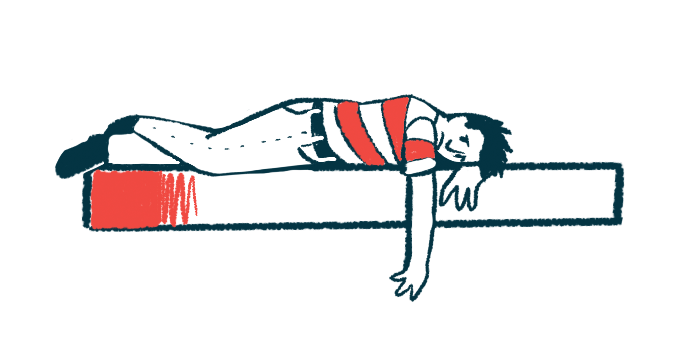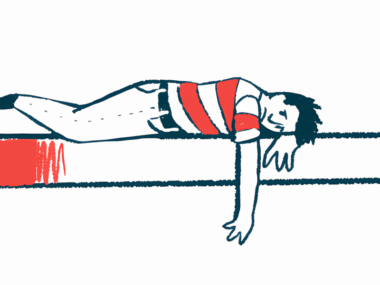Anxiety, Depression Need Better Management in Hemophilia: Survey
Written by |

Symptoms of pain, anxiety, and depression generally increased with disease severity in people with hemophilia and were also associated with a lower quality of life, according to a recent survey involving patients, caregivers, and healthcare providers.
While many surveyed individuals felt their pain was adequately addressed in the clinic, fewer felt their anxiety and depression were being well managed.
“Pain and depression/anxiety occur more frequently with increasing haemophilia severity, with negative impacts on health-related quality of life. [People with hemophilia] with depression/anxiety or unaddressed pain could benefit from improved management strategies,” the researchers wrote.
The study, “Pain, depression and anxiety in people with haemophilia from three Nordic countries: Cross-sectional survey data from the MIND study,” was published in the journal Haemophilia.
Hemophilia is a disorder characterized by ineffective blood clotting and excessive bleeding. This bleeding sometimes occurs internally, resulting in painful swelling at the joints.
This pain can negatively impact the health-related quality of life of hemophilia patients, in whom depression and anxiety are prevalent.
MIND (NCT03276130) was a two-part study aimed at understanding the management of health-related quality of life impairments in people with hemophilia. The trial’s second part used surveys to assess the perspectives of patients, caregivers, and healthcare providers on the management of pain, depression, and anxiety among individuals being treated at hemophilia treatment centers in Sweden, Denmark, and Finland.
Overall, 343 adult patients responded to the survey, including 264 with hemophilia A and 79 with hemophilia B. Seventy-one responses were received from caregivers, most of whom (80%) were caring for children with hemophilia A.
Severe hemophilia was reported in 180 (53%) adults and 39 (55%) children, whereas moderate disease was reported in 53 (16%) adults and 17 (24%) children. Mild hemophilia was reported in 103 (30%) adults and 15 (21%) children.
About half of the adults with hemophilia (50%) and caregivers (46%) reported that their own or their child’s hemophilia had caused pain in the last six months. Most adults who reported pain said they had experienced it at least once per week, whereas in children, pain usually occurred less than once per week.
Of those who experienced pain, 36% of adults and 17% of children had used treatment for it over the preceding two weeks.
In general, reports of pain and the use of treatment for it were associated with disease severity, with patients who reported greater disease severity also being those who more frequently reported pain and used medications to manage it. However, more people with mild hemophilia said they felt the need for treatment, but had not used it.
Depression or anxiety due to hemophilia was reported in 28% of people, which was more common in those with severe or moderate disease. In the preceding six months, 15% of people who reported these symptoms had used treatment or counseling, and an additional 13% said they felt need for it. Few children (less than 7%) had used treatment or counseling, but 13% of caregivers felt their child needed it.
Among all people who had ever experienced pain, 62% felt their pain was adequately addressed by their healthcare providers, whereas 24% of people said their depression or anxiety was adequately addressed.
Among five surveyed healthcare teams from hemophilia treatment centers, four providers agreed that their patients’ pain was adequately addressed, whereas two providers felt that anxiety and depression were adequately managed.
Overall, most patients and caregivers felt that they or their child coped well with hemophilia and that their current treatment allowed daily functioning at work or school, but some people did report effects on social life and leisure activities. These effects were significantly greater in those with severe hemophilia.
Health-related quality of life, measured with the EuroQol 5-dimension test (EQ-5D), was significantly reduced with increasing disease severity.
In general, study findings show that “symptoms occurred more frequently with increasing haemophilia severity and may contribute to reported negative effects on quality of life,” the researchers wrote, adding that the “answers indicated that [people with hemophilia], caregivers and [hemophilia treatment centers] generally felt that the management of pain related to haemophilia was satisfactory, but depression and anxiety may not be as satisfactorily addressed in clinical practice.”
Given the possibility that greater anxiety or depression may result in a lower adherence to hemophilia treatment, leading to exacerbations in disease symptoms, it is important to adequately address these issues, the researchers pointed out.
“This supports the need for improved guidelines with a more proactive and structured approach for the identification and management of depression and anxiety symptoms, including counselling and individualised interventions,” they wrote, adding that for hemophilia patients, this “may result in improvements in their quality of life.”


